We know it can get frustrating to try to motivate your child to study Science at home. Well, these 5 tips will help them stay motivated and interested in learning Science!
5 hot tips to study Science at home
- Promote hands-on learning
- Do experiments
- Discuss content together
- Use a variety of different study methods
- Encourage curiosity
1. Promote hands-on learning
You can’t study Science at home by just reading a textbook and completing worksheets.
Science is a very hands-on subject. You are required to apply and ground your knowledge in real-life examples to fully understand the content.
Download your free experimental report template
A template to teach you to write perfect science reports
That’s why students learn Science best when they are directly engaging with the learning process.
So, here are some methods that will help promote hands-on learning for your child:
1. Draw lots of diagrams
Draw graphs of results, cross-sections of plants, labelled human organs, electricity circuits… You get the point!
Science diagrams help students visualise structures and functions of different systems and parts, identify trends and patterns and to represent information in a clear and visual manner.
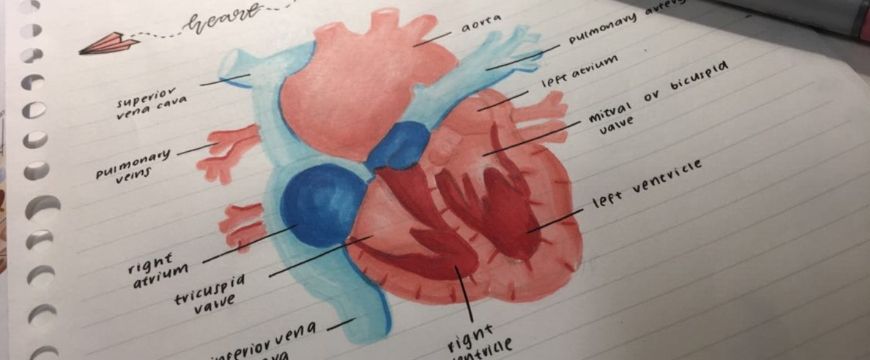
Here is an example of a scientific diagram from a Matrix student
2. Create models
Some scientific concepts are not so easy to see… like the minuscule atomic structure, or the gigantic solar system.
That’s why models are so critical in your child’s Science studies. They help students understand complex scientific theories, concepts and phenomena by representing them in a visual way.
For example, students can use marbles and pipe cleaners to represent an atomic structure or use different size fruits to represent the Solar System.
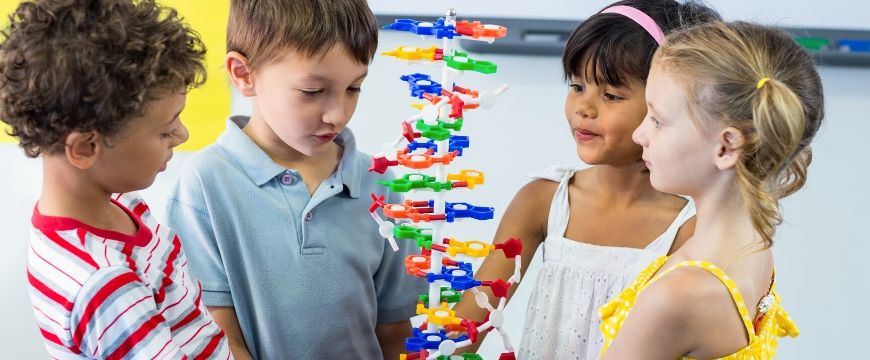
3. Observe and link to real-life examples
Another good method to ground theoretical knowledge is to find real-life examples!
Go out to your backyard or take a walk in the park with your child. Observe how science works and ask questions.
Why does this particular plant species only grow in this area? Is it because of the sunlight, water, soil or pH needs?
Take photos and notes! When you get back, research about these observations to consolidate your knowledge.
Remember, if you can’t go out (or you just don’t want to), you can always watch YouTube videos and research some examples!
Just ask the same questions and get your child to connect it to their science content.
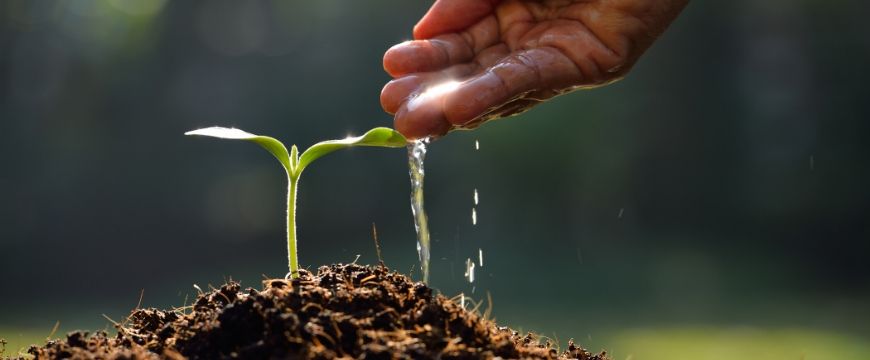
4. Take things apart
Sometimes, the best way to study Science at home is to physically break things apart and see how different parts function together.
They can cut open a flower to see it’s parts or dismantle an old toy car to see what a circuit looks like.
However, it is important that you are supervising them through every step of the way to ensure that they don’t hurt themselves. You also need to emphasise that they are only allowed to dismantle objects with your permission.
We don’t want your child to break open your working TV.
Note: Don’t dissect animals or organs at home. It is better if your child does this at school because they have better facilities to accommodate for these procedures. Teachers are also trained for this and will show your child how to do it in a safe and educational way.
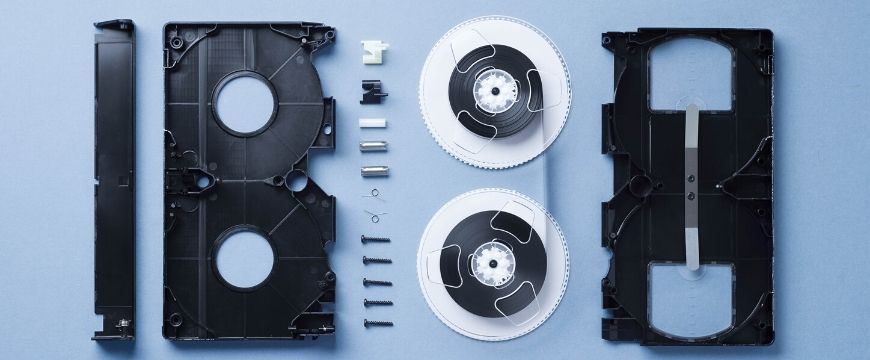
2. Do home experiments
We know the sound of doing home experiments may sound intimidating.
However, doing them will really improve your child’s learning process. It helps them investigate scientific concepts, consolidate their knowledge and understand the content better by seeing how things work first-hand.
Remember, don’t be afraid to make a mess! It’s all part of the learning process.
So, let’s see how we can do home experiments!
1. Watch a video of the experiment
Read our article, 7 Simple Experiments You Can Do at Home to find some easy home experiments!
Once you have a home experimental method, find a corresponding YouTube video and watch it with your child.
It is important that you understand how the experiment works before you attempt to do it. This will save you time, mess and money!
Remember to take notes of the equipment, steps, and results as you watch it.
2. Find all the necessary equipment
Now, you need to look for all the equipment before you begin the experiment. These include chemicals, apparatus, ingredients etc.
You don’t want to start an experiment and realise you don’t have all the necessary equipment.
Most of the equipment should already be in your household. However, if you’re missing some, you can always pop out at grab it at your local supermarket.
3. Let your child do the experiment
It is important that you let your child do the experiments themselves. They will not learn if they are simply watching you do it for them!
Experiments help students investigate scientific concepts first-hand. They learn from trial and error and see how different variables can change results. This process will also help them better remember the content and the experiment.
However, you should still supervise them and help them when and as they need it.
Finally, ensure that you are both recording the results of the experiment. Maybe video things on your phone so they can rewatch later for further observations.

4. Discuss the experiment together
After the experiment, it is always important that you both discuss what you learned. Here are some sample questions:
- What were the results?
- How did you get your results? What is the significance? How do these connect to scientific concepts?
- Do you think the results are valid, accurate and reliable?
- What could you do to improve the experiment?
5. Write an experimental report
Your child should write an experimental report after an experiment.
This will help refine their experimental report writing skills and help them consolidate their knowledge in writing. You can learn more about How to Write an Experimental Report from this step-by-step guide.
If they don’t have enough time to complete a full report, ensure that they at least jot down the hypothesis, method and results.
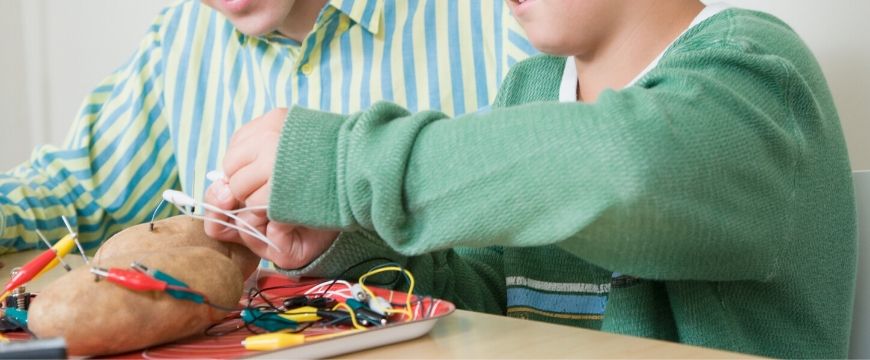
3. Discuss the content together
One of the best ways to study Science at home is to discuss the content together!
This will help your child identify their weaknesses and missing gaps in knowledge. The discussion will also help them clarify confusing or challenging concepts.
So, how do we do this?
1. Ask questions
Set out some time every week to verbally test your child.
Ask your child questions about everything they learned during the week and see what they know and don’t know.
This way, you are able to identify weak areas quickly and work on them immediately.
2. Let your child teach you the content!
Teaching is the best way to learn.
Every week or so, have your child prepare a lesson to explain one scientific concept. Gather your family together and let your child teach you about this concept. Don’t forget to ask some questions too!
This method is especially effective because your child is expected to approach the material in a new way!
They aren’t simply reading and remembering content, they also need to understand it enough to teach it.
3. Work together through difficult and challenging concepts
It can be frustrating for your child when they can’t grasp challenging concepts at home.
When they ask you a question, don’t reply with, “I don’t know.”
Instead, say, “Let’s find out!” You should both work together to break down these difficult concepts.
Do some research, and talk through the content together.
At Matrix+, you can get Science help from home! We offer theory video lessons that explain your science content, and a discussion forum to have your questions answered by experienced Science teachers!

4. Use a variety of different study methods
Simply reading a textbook can get boring pretty fast.
So, encourage your child to learn Science by using a variety of different methods. This will help them stay interested and engaged in the learning process.
Here are some examples:
1. Watch science videos
Videos are especially helpful for students who are visual and auditory learners. It also helps them visualise their content.
Your child can watch science videos for all different reasons like:
- Viewing real-life examples:
- eg. ice core drilling or the evolution of bacteria
- Understanding how an experiment works:
- eg. How to test starch in potatoes
- Viewing models:
- eg. How the planets rotate around the sun
- Understanding content:
- eg. Crash courses about the immune system, or Matrix+ Theory Video Lessons
2. Play interactive online science games
Games are not always bad! They can be useful for your child’s learning.
There are many science-related online interactive games that help your child ground their knowledge.
Do some research and find some good interactive scientific games. You should play it at least once before sharing it with your child. This will help you decide whether or not it is useful to their learning.
Here are some examples of games you can find:
- Simulations: These games allows your child to test different variables and see how that changes the results for different models
- eg. Natural Selection Evolution Simulation and Newton’s Law of Force Simulation and Make a Mangrove ecosystem
- Models: These games require your child to apply their knowledge and build a model
- eg. Building a DNA Molecule and Build an Atom
- Interactive learning: These games provide your child with science facts as they explore different elements of the game
- eg. Interactive Exploration of Eukaryotic Cells
- Interactive tests: These games test your child’s knowledge about the topic
- eg. Force Types Puzzle
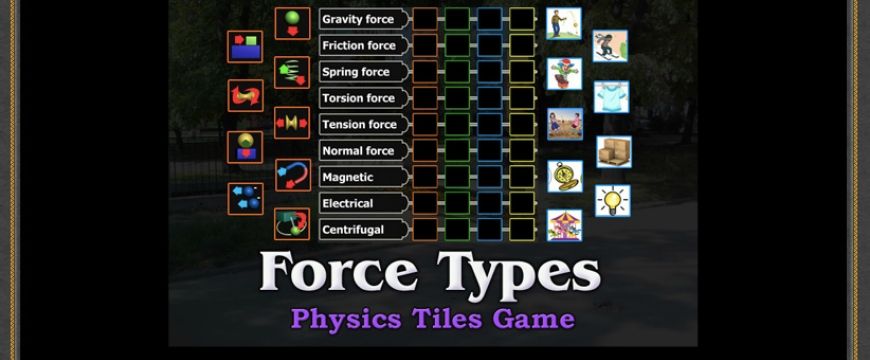
3. Do some science research
Encourage your child to do their own research about scientific concepts that they are struggling with or find interesting.
By researching, they are not only delving deeper into a topic, but they are also honing their analytical skills.
When your child is researching, ensure that they are able to distinguish accurate, reliable and valid information from those that are not so accurate, reliable or valid. You can learn more about reliability, accuracy, and validity, in this article!
To do this, you must:
- Find recent information (Within the last 5 years)
- Use credible sources (eg. Government websites, organisations etc)
- Check if the content is biased
- Double-check the information with another credible website
- Check the author’s credentials
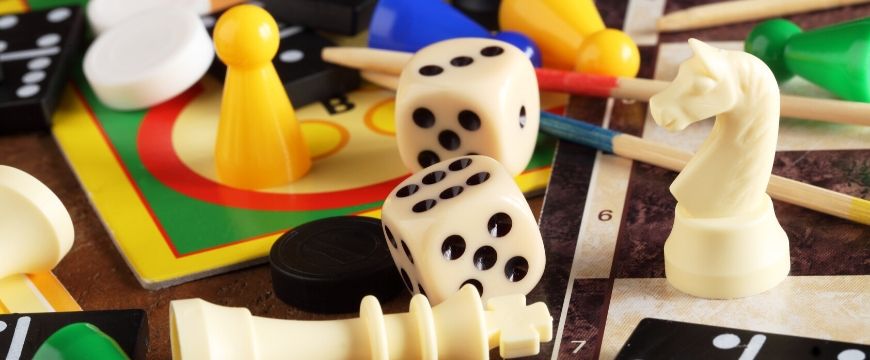
5. Encourage curiosity and questions
The best way to study science at home is to dig deeper and stay curious.
Learning Science is like solving a mystery. There is always a big question and a quest to find the answer to it.
1. Encourage questions
You should always ask questions to stimulate your child’s thought process and encourage them to ask questions too!
This will help them think about the content more deeply.
2. Relate scientific concepts to the real world
When you relate concepts to the real world, you make the content relevant and, therefore, relatable.
So, it is important that you are always encouraging your child to draw links between their scientific studies and real-life!
For example, ask them why plants need sunlight when you are gardening together or why detergents are able to clean stains.
This will make their Science studies more interesting!

,
